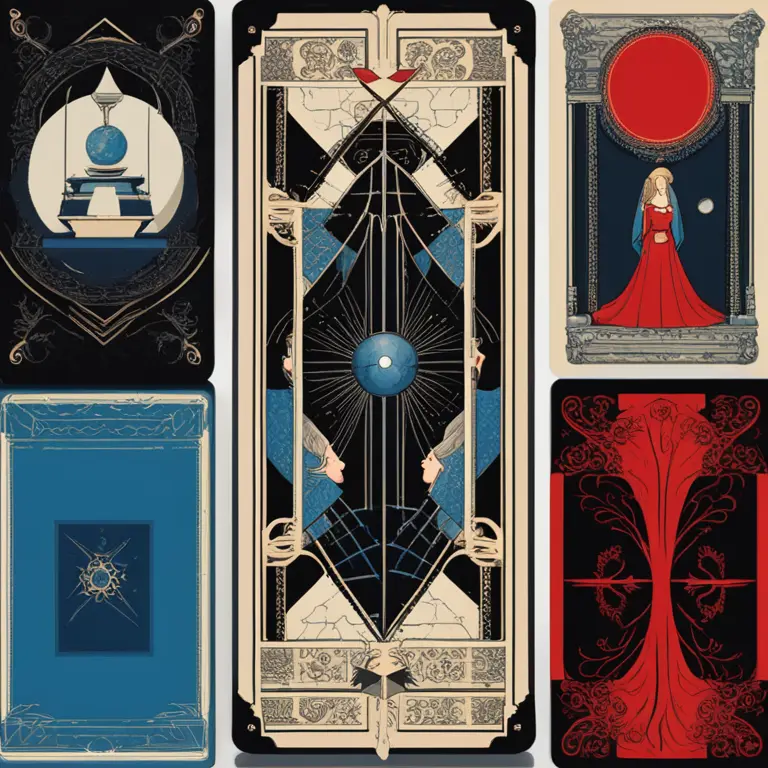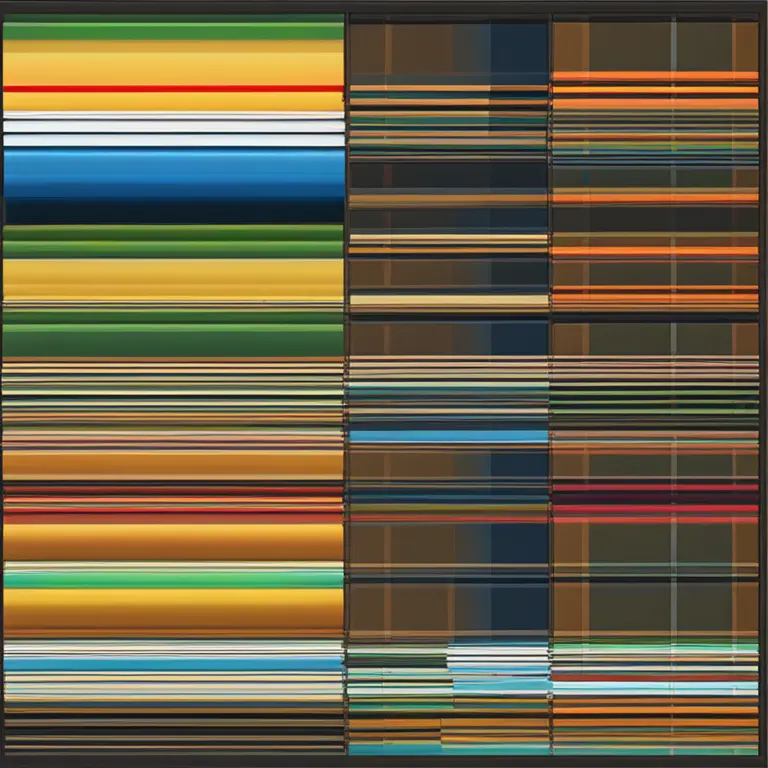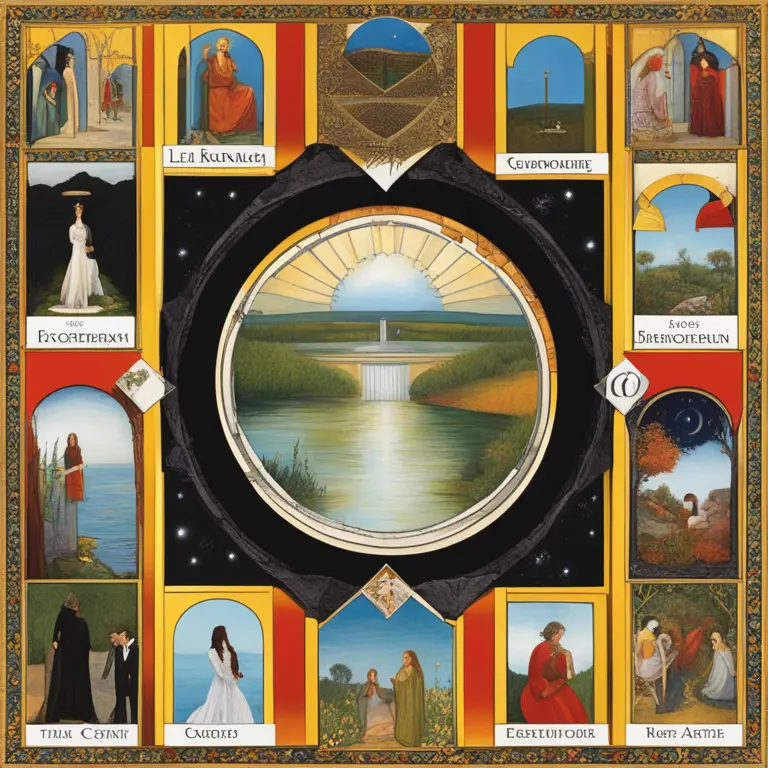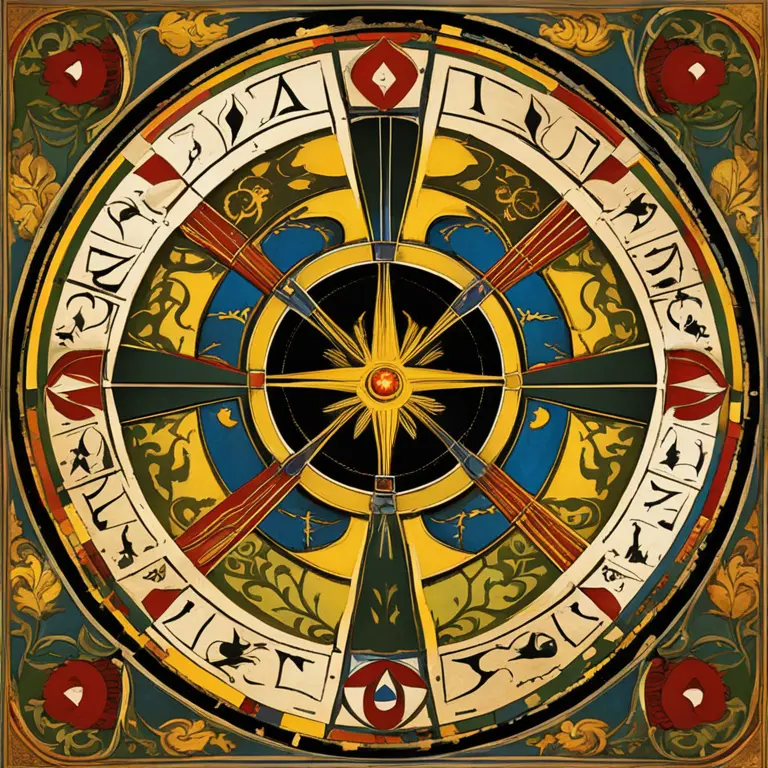
The Roots of Tarot Imagery
The Tarot has long been shrouded in mystery and magic, with roots that delve deep into the soil of medieval European history. Illustrated with symbolic imagery, each card serves as a mirror to the soul, a window to the subconscious, and a canvas of archetypes. The artistry of Tarot extends beyond mere illustrations; it's a complex language that communicates the human experience. The Major Arcana depicts the life's journey from the naïve Fool to the accomplished World, while the Minor Arcana captures the nuances of daily life through its suit of cups, wands, swords, and pentacles.

The Evolution of Tarot Design
Over the centuries, Tarot art has evolved, reflecting cultural shifts and artistic trends. From the ornate hand-painted decks of the Renaissance to the modern digital renderings offered in today's market, each deck is testament to the era and the artist's vision. The classic Rider-Waite-Smith deck, illustrated by Pamela Colman Smith under the direction of Arthur Edward Waite, remains one of the most influential, shaping the standard for contemporary Tarot symbolism through its bold lines and evocative imagery.

Interpreting Symbols and Colors
Each Tarot card is a tapestry woven from a rich array of symbols and colors, each with its own significance and story. Color holds power in Tarot artistry, with red often signifying passion or will, blue symbolizing wisdom, and black representing the unknown or the subconscious. Artists carefully select symbols and colors to evoke specific emotional responses and to guide the intuitive process of divination. The layering of these elements conveys complex narratives that are unique to each seeker and each reading.

Artists Shaping Modern Tarot
The Tarot's resurgence in popularity has paved the way for a new wave of artists, each bringing their unique style to the ancient practice. Contemporary Tarot decks range from the gothic and mystical to the whimsical and minimalist. Artists such as Kim Krans of The Wild Unknown and the creator of the ethereal Starchild Tarot, Danielle Noel, are transforming the way we interact with these ancient symbols, blending the mystic with the modern and drawing forth a renewed relevance to Tarot in the 21st century.

The Personal Touch in Tarot
In the modern age, personalization has become key in many spiritual practices, including Tarot. As practitioners form deeper connections with their cards, artists and deck creators have responded with custom designs that resonate with diverse audiences. The power of Tarot artwork lies in its ability to connect with the individual on a personal level, to touch upon the collective unconsciousness while also speaking directly to one's own circumstances and experiences.
Tarot Art in the Digital Space
With the advent of technology, Tarot artistry has expanded into the digital domain. Apps and online Tarot readings have become more prevalent, bringing the beauty and insight of Tarot to a wider audience. These digital platforms often feature interactive and animated illustrations, allowing for a dynamic engagement that translates the age-old practice into the language of the digital native. Despite this shift, the core essence of Tarot remains unchanged: a journey into self-discovery through the power of art and intuition.
Published: 1/17/2024
Modified: 1/17/2024
More predictions
Come back here soon to learn more about yourself and your future


Is He In Love with You? Insights from Tarot
Discover if he's in love with you through the mystical lens of tarot readings. Seek clarity and signs within the cards in this insightful article.


Who Will I Marry? A Glimpse Through Tarot
Discover the potential of Tarot cards in revealing insights about your future spouse. Learn how the cards can guide you to understanding your path to marriage.


The Importance of Tarot in Personal Insight
Discover the importance of Tarot in gaining self-understanding and navigating life's journey.